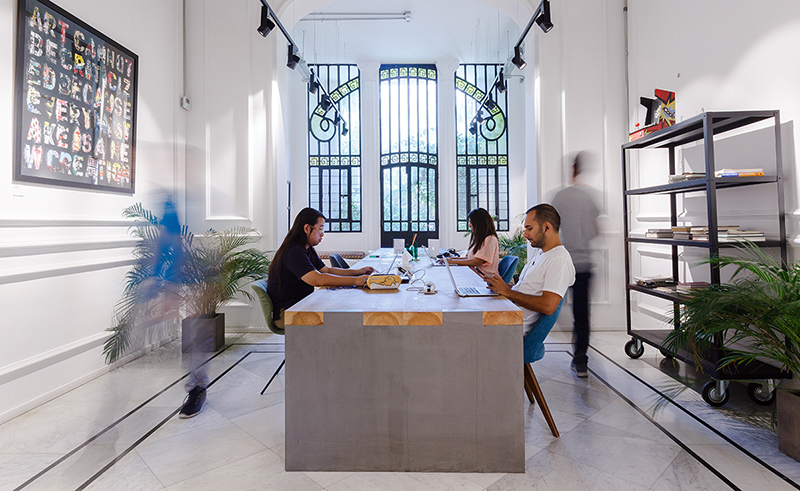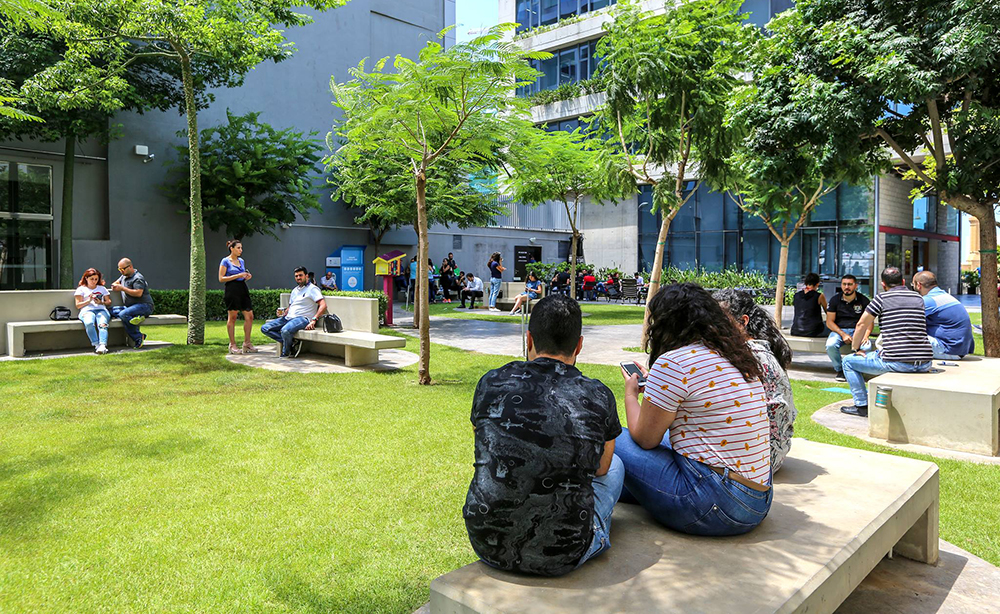Hacking Through Beirut's Commercial Real Estate: An Interview With Antwork and BDD
We speak to Zina Dajani from Antwork and Christelle Abou Jaoude from Beirut Digital District about their journeys in commercial real estate in Beirut.

From beaches to real estate, Beirut is plagued with privitisation. Real estate sales were at their peak in 2008 until a crescendo of tragedies dwindled the demand and paved the way for a surplus of supply. According to Ramco real estate consultancy firm, there are at least 4,000 empty flats in 85-kilometre-square Beirut.
“Real estate is going through a crisis and owning real estate is no longer feasible for many with the absence of bank facilities and subsidized loans,” Antwork’s Founder and CEO Zina Dajani told Startup Scene.
“Owning properties as an investment is no longer convincing because it is not liquid at all compared to when it was hardly liquid, and appreciation in prices is no longer expected in the short or medium term,” explained Dajani, who was a real estate professional before she established Antwork, a 5-squared-kilometre co-working space settled in Kantari that houses startups like the Geek Express.
“Beirut is a city of both opportunities and challenges, and since the market is fluctuating over the last few years, the challenges faced by entrepreneurs are increasing,” Beirut Digital District’s (BDD) Growth Director Christelle Abou Jaoude told Startup Scene. BDD is also one of Beirut’s iconic startup campuses, embracing 10 buildings and housing almost 100 tenants comprised of startups, accelerators, and investors.
“One of the main challenges is the high real estate prices to rent or own space in Lebanon. For these reasons, many entrepreneurs prefer to acquire or rent property in rural areas such as Keserwan, Jbeil, and Mansourieh.”
These properties in rural regions are cheap compared to those in the capital. They also pose an opportunity for entrepreneurs to rent housing units instead of business units, making them more affordable.
As for commercial real estate, Dajani has watched entrepreneurs opting to rent because business requirements are changing, and the burden of owning is not so easy to manage as it used to. “Exceptionally, real estate owners are those who start a business because they own the real estate - it's in the family,” Dajani said. “Thus, the capital required to start is already half-invested. Yet, they are finding the burden of holding onto the real estate properties too heavy to carry and are considering letting go when possible”
To set up a business the conventional way, that meant finding a property that matches the team’s size and budget, negotiating and signing a minimum of three-year lease, fitting it out and setting it up, taking care of electricity, internet, phone, municipality fees, and all the rest.
“Today's entrepreneurs are bootstrapping in the beginning, they are getting the minimum required from family and friends who believe in them to launch that idea,” said Dajani. “The last thing they need to spend money or time on, is a workplace, and administrative and logistics. And for sure they are not the most experienced in that domain.”
Enter, co-working spaces

BDD is also one of Beirut’s iconic startup campuses, embracing 10 buildings and housing almost 100 tenants comprised of startups, accelerators, and investors.
Like the rest of the world, Beirut discovered co-working spaces in the aftermath of the digital revolution and it played well with its inflating economy. “Entrepreneurs always end up getting into agreements they can't get out of and this was the reason Antwork came about,” Dajani adds.
Antwork was built to solve the problem of workplace for the independent worker. A little over 2 kilometres away, BDD helps these entrepreneurs find ease in their business journey and opens up a new world for them where they can meet like-minded people and face new opportunities.
“BDD helps by providing assistance throughout the lifecycle of the company since establishment including access to legal, auditing and financial consulting at reduced rates,” Abou Jaoude said.
BDD also provides members with cutting edge IT infrastructure by helping with the application to Fiber Optics connections with Ogero, which include shared and dedicated packages at discounted rates. In addition, HR support is offered by helping in recruitment through a platform for employers at BDD to post jobs and for job seekers to upload their CVs. In conclusion, BDD offers companies a long list of value-added services to maximise convenience so that companies can give their business goal all the attention it needs.
Whereas Antwork’s main client is the space owner; real estate developers and owners who own underutilised commercial space. “Antwork offers the operating system, technology and management of unexploited space to turn it into a monetised shared office space, powered by Antwork and offered to its growing community,” said Dajani.
In this sense, Antwork brought to the market a solution for real estate asset holders, who thrive to join the sharing economy and who do not have the knowledge or the means to address the independent worker.
“Bringing BDD to life was a challenge because the main objective of BDD is to create a dynamic all-inclusive working space and bringing together a digital community in Lebanon was tough when it was first launched,” Abou Jaoude said. "One of the things that policymakers can do is to regulate real estate prices and loans for young entrepreneurs who are interested in investing."
Abou Jaoude also suggested that the government creates policies for interest rates such as setting a specific rate that only entrepreneurs can have when they rent or own a property. Policymakers might also set rules that would facilitate the payment of taxes, electricity bills, legal documents, and many others administrative costs. "These actions will help entrepreneurs and startups better predict and manage their expenses," she said.






















